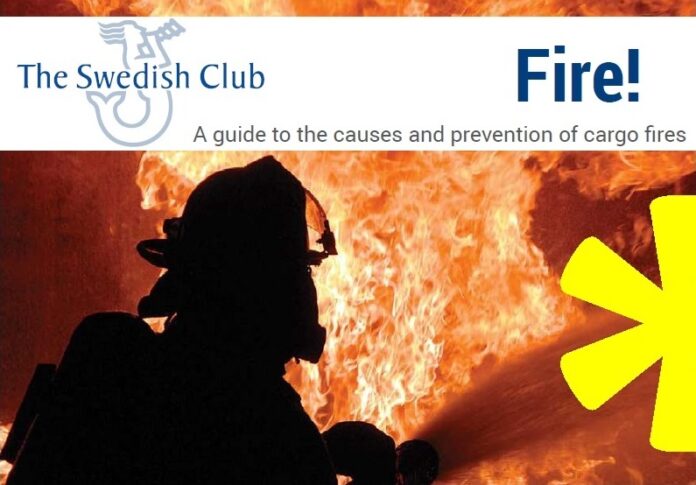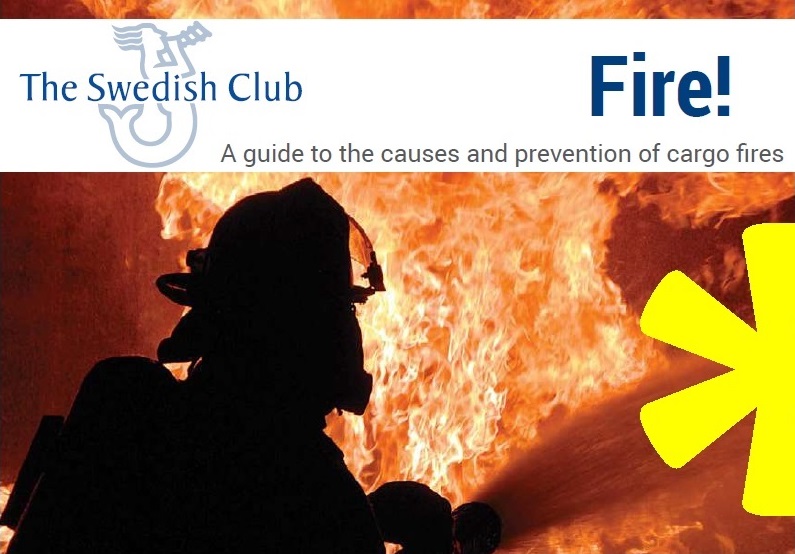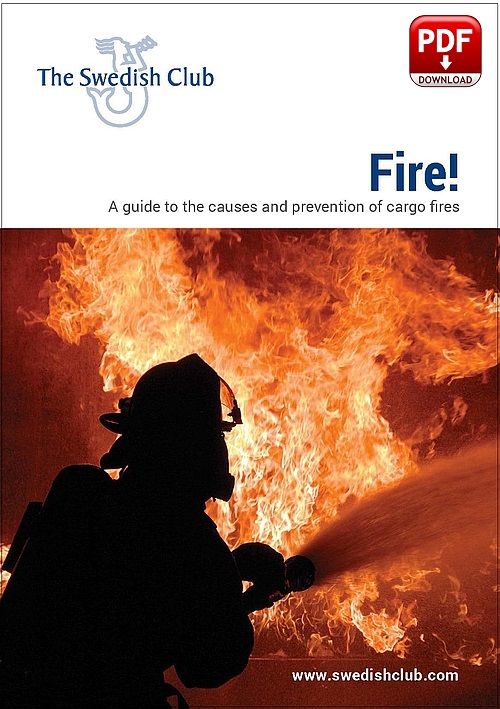
(www.MaritimeCyprus.com) When a fire breaks out on board a vessel there is no fire service ready to assist in extinguishing it – it is up to the crew themselves. The consequences can be catastrophic, and all those who have worked on board a vessel are aware of the difficulties involved with managing a fire and the crucial importance of fire prevention.
Cargo fires occur so infrequently that awareness of the risk can slip under the radar. Yet such an incident on board a vessel can have disastrous consequences including loss of life or catastrophic loss of the vessel involved. With the average cost of a cargo fire at several million US$, cargo fires are not a risk to be overlooked. When a fire breaks out on board a vessel there is no fire service ready to assist in extinguising it - that is up to the crew themselves.
The information in this handbook is designed to assist shipowners and crews in those fire prevention efforts. Fire! explores marine cargo fires and explosions, focusing particularly on self-heating: explaining the principles of self-heating, and investigating several types of cargo fires and explosions including those in bulk cargoes, containers and tankers.
This handbook is not designed as a substitute for the full International rules/regulations which should be understood and followed.
- SOLAS
- International Code for Fire Safety Systems (FSS Code)
- International Maritime Solid Bulk Cargoes (IMSBC), and
- International Maritime Dangerous Goods (IMDG) Code entries.
The Swedish Club, in conjunction with Burgoynes, have produced this handbook which is a guide to the causes and prevention of cargo fires. It can be used alongside the regulations to assist seafarers in their daily loss prevention efforts.
Click on below image to download the guide from The Swedish Club.
Source: The Swedish Club















